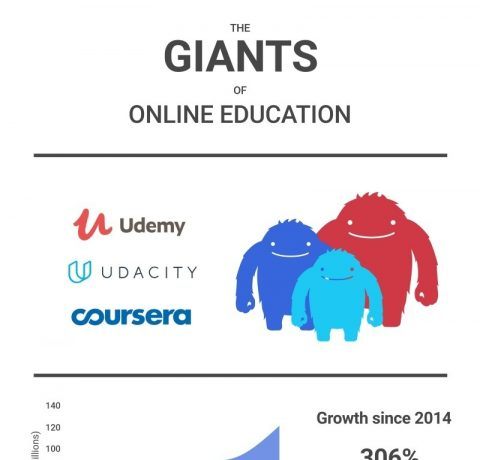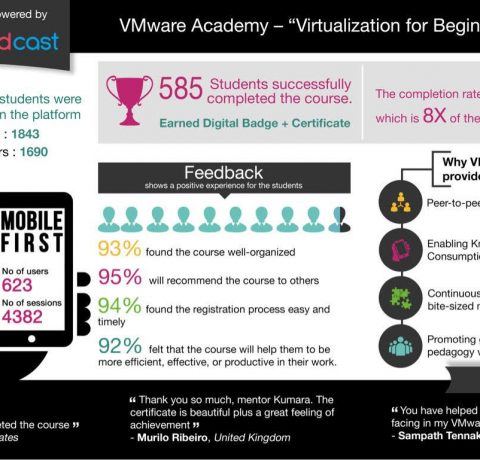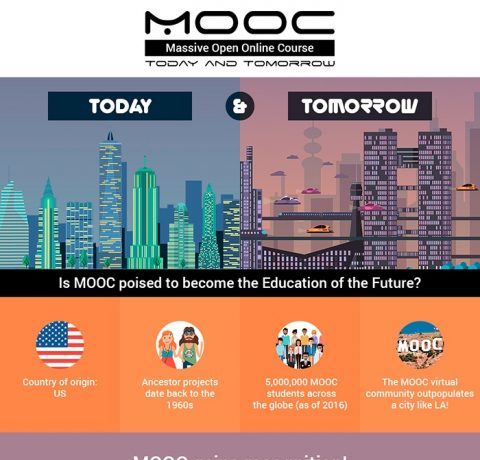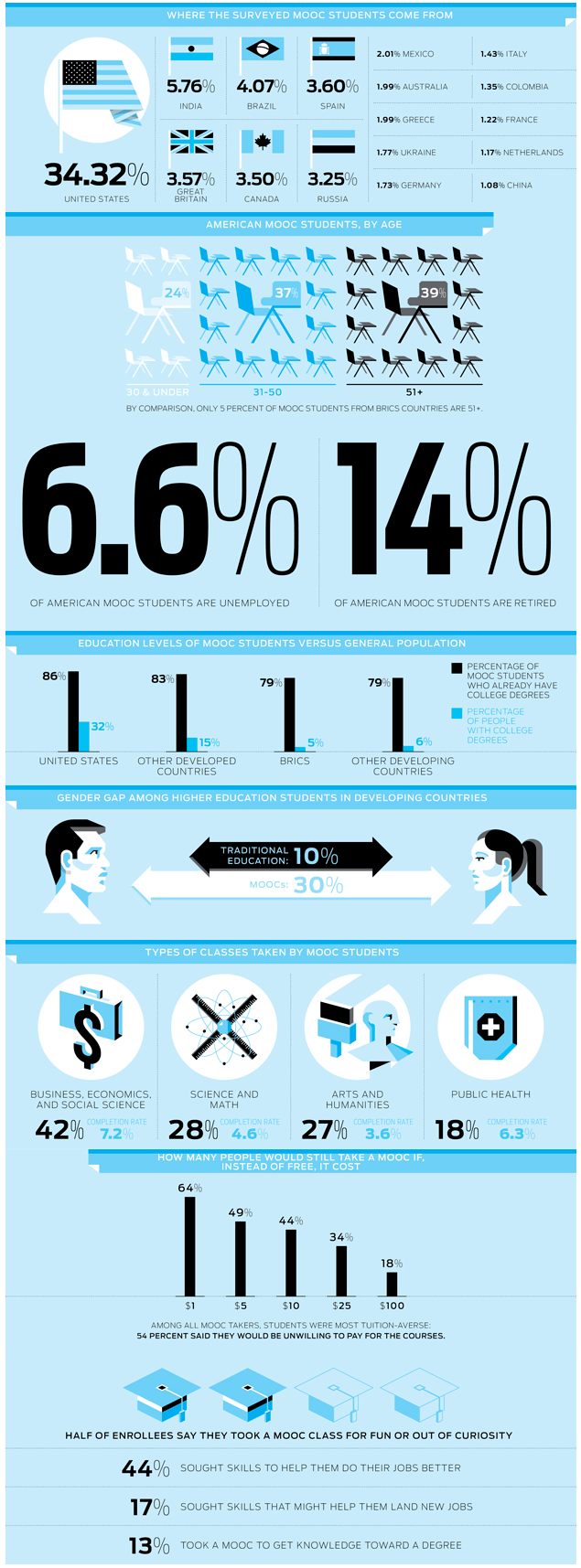Massive Open Online Courses, or MOOCs, represent one of the most momentous and contentious changes to higher education in decades. But the debate over the free Internet classes has been a conspicuously fact-free zone. While techno-utopians tout MOOCs’ potential to topple barriers to college educations for disadvantaged people worldwide and skeptics warn of the downsides to automated instruction, neither side has been able to point to reliable data to support its claims.
So a team at the University of Pennsylvania decided to inject some empiricism into the discussion. Surveying people who have enrolled in a MOOC offered by the university and completed at least one full lecture, they collected nearly 35,000 responses from students hailing from around the world. From the survey results, a clear portrait emerges: as depicted in the Who Takes MOOCs Infographic, MOOCs, at least thus far, are serving the world’s haves more than its have-nots. A disproportionate number of MOOC students are already well-educated. Globally, they’re predominately male and currently employed; in this country, they’re also older than you might expect. Far more enrollees view them as a diversion than they do as a means to a college degree or a new job.







You can adjust your cookie preferences here.